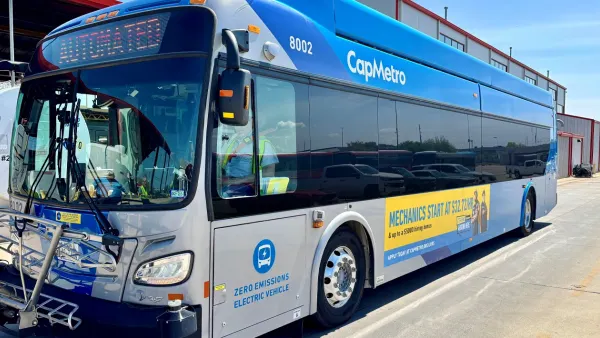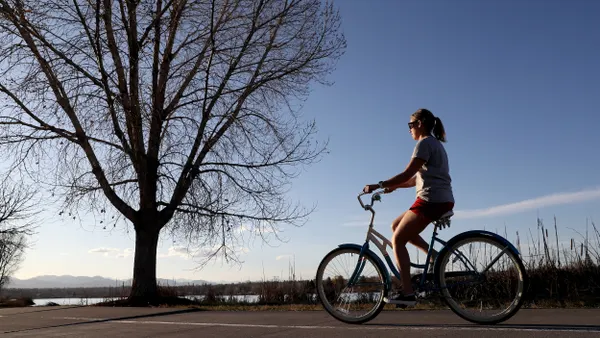Dive Brief:
- City dwellers can expect to see even more dockless vehicles on the streets in coming years, as bike and scooter companies aim for one trillion rides per year across the world.
- On a conference call hosted by media company The Information, officials with three dockless companies — Scoot, Jump and Skip — said there is plenty of room to grow given the demand, and that cities that do well are encouraging competition between providers.
- "Even a city like Barcelona with 1.5 million people, it does 5 million trips a day,” Michael Keating, CEO of scooter startup Scoot, said. "To serve that with any number of scooters, bicycles, motorbikes, electric cars, requires tens of thousands of vehicles at least to really make a dent."
Dive Insight:
It has been quite a year for dockless bike and scooter companies, which exploded onto the scene in 2018. Those companies initially began dropping their vehicles on cities without warning, but then began to build better relationships as governments work to regulate the industry. The likes of Bird and Lime recently hailed large ridership numbers, showing just how in-demand the dockless bikes and scooters are in many cities.
During the conference call, company representatives were asked if they were engaging in a "land-grab" to get into a city first, or if there was a long-term plan behind their forays into new markets. Keating said companies want to launch in as many places as possible and do so quickly, although he rejected the idea that his company is concerned with being the first.
"Where the urgency comes from for us is we want to participate in these great cities, we want to get a team on the ground and a fleet in place in awesome cities like San Francisco and Barcelona and some other cities where we'll be launching soon, and we want to grow it from there," Keating said.
When it comes to entering new cities, companies quickly learned they had to work with local leaders. Darren Weingard, chief legal officer at Skip, said in his experience regulators are more concerned with fostering competition and ensuring the safety of their residents rather than "playing kingmaker" and choosing one company to dominate. "That approach with those early entry into some cities has created some regulatory headaches,” he said. “We have found that being welcome in a city is much more important than being first in a city."
While cities can feel overrun by dockless bikes and scooters, leading to concerns over safety after several deaths of people who were riding them in various cities, Ryan Rzepecki, CEO of Jump, said it could be very different. Rzepecki, whose company was bought by ride-hailing giant Uber earlier this year, pointed to China, where dockless companies saturated the market and drove fierce competition — leading the likes of ofo to rethink their global strategy.
But in the west, Rzepecki said the "competitive demand really hasn't taken hold yet," so no company has truly scaled up and the competition for riders is still in its infancy. Keating noted only time will tell which companies are truly successful in different markets. “I think it's going to be a while before it becomes a question of which company can take the other companies' riders,” he said.











